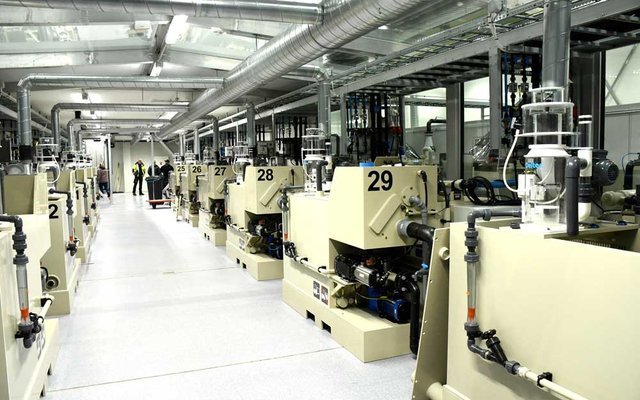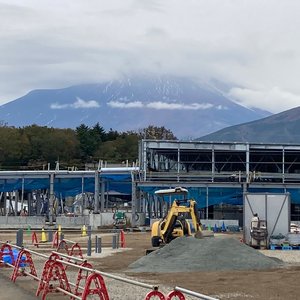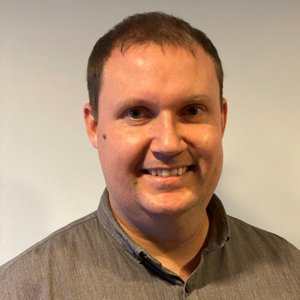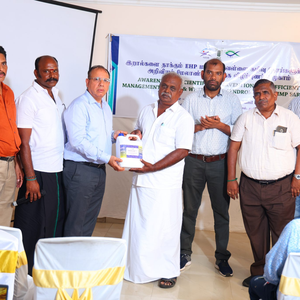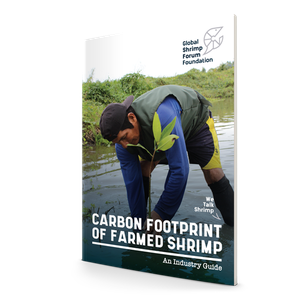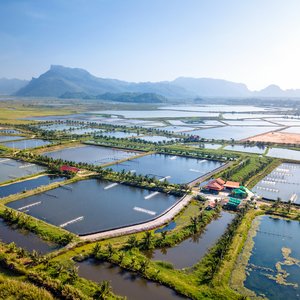Nofima opened a new hall at the Aquaculture Research Station in Tromsø, one of the world’s most advanced research facilities for onshore fish farming.
The newly constructed 1,350 m2 hall (RASforsk) with an investment of NOK 90 million (USD 9.1 million) will focus on training, education and research. RASforsk features 18 one-cubic meter tanks and six nine-cubic meter tanks, all with separate recirculation systems. Since this is a new build, the facility is very flexible, and the recirculation systems and tanks can be interconnected as needed. RASforsk can take in both freshwater and seawater as needed. To avoid high energy consumption, almost 100% of the water is recycled.
“The aquaculture industry is undergoing rapid technological developments, and in order for education and research to keep up, it is essential that modern research facilities are developed in line with national requirements. There is a great need for training and transfer of knowledge to the industry, also in the north,” said Rita Sæther, general manager of the Aquaculture Research Station in Tromsø. “The industry is aware of how important knowledge is for the well-being of the fish, particularly now as developments indicate that fish should be kept on land longer before being released into the sea, or in some cases be farmed on land right up to slaughter.”
Fish welfare is an important issue for the new facility. “Fish welfare is very important, and technology must be adapted to the fish’s requirement for good water quality. This means that temperature, salinity, oxygen, carbon dioxide, ammonia, pH and biofilter activity must be closely monitored. This can be demanding, and education and research are important for the aquaculture industry to develop its use of RAS technology,” said Bente Torstensen, division director at Nofima.
The Aquaculture Research Station in Tromsø is jointly owned by Nofima and UiT the Arctic University of Norway with 50% each. Joint ownership of costly infrastructure allows for better utilization of resources and more collaborative projects.
“The industry needs more minds who know RAS, and there we have a particularly important task to train candidates who can contribute to healthy fish, better fish health and sustainable production. We are pleased that RASforsk has better facilities for this. Because developments are so rapid, it makes sense to coordinate research, education and industry partnerships, which joint ownership of the Aquaculture Research Station enables,” said Katrine Tveiterås, pro-rector at UiT – The Arctic University of Norway.
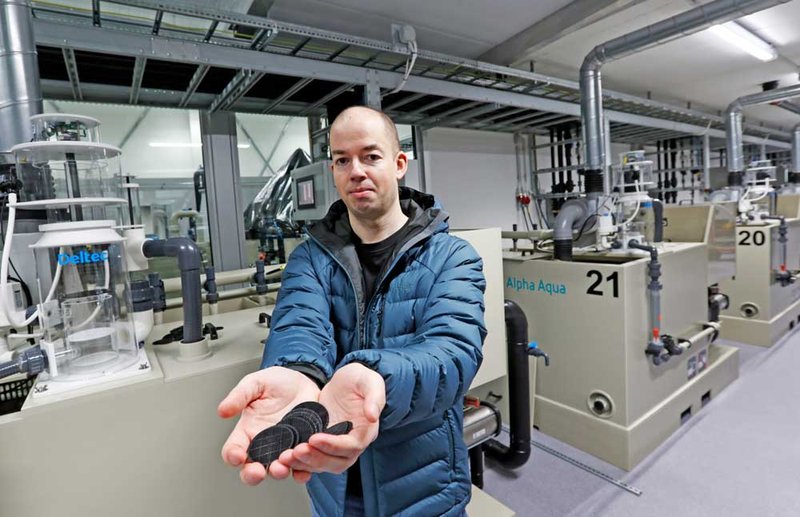
Scientist René Alvestad. Photo: Rune Stoltz Bertinussen


